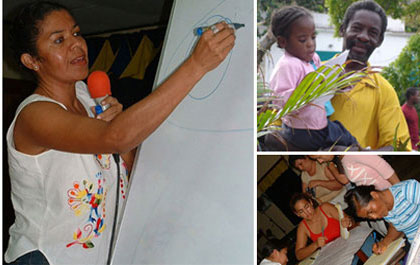




Development in the aftermath of the global meltdown: Can sustainable value chains provide an appropriate strategy?
Funded by the Shastri Indo-Canadian Institute (SICI), Calgary, the main purpose of this project is to develop a long-term collaborative research program involving Center for Development Studies (CDS), Kerala. In addition, several other civil society organizations and social enterprises will be involved. The research program will focus on challenges posed by the global economic crisis for realizing the Millennium Development Goals (MDGs), and possible strategies for addressing them. In contrast to conventional chains, sustainable value chains (SVCs) are networks in which the interests of small producers and the workers are prioritized. Sustainability can have both social and environmental dimensions. The latter refer to the extent to which the products/processes associated with the chain are ecologically appropriate. Social sustainability is a more complex notion, less systematically treated in academic and policy discourse. A value chain to be socially sustainable if: (a) it is democratically organized; (b) it does not create any dependence between different participants in the value chain or on an external agency; and (c) it engenders equitable rather than hierarchical relationships between different participants in the value chain.
Our particular concern is the gender dimension: can norms and structures associated with SVCs enable women to challenge power asymmetries and overcome the cycle of vulnerable work and poverty? What evidence do we have in this regard? Second, how can SVCs impact other MDGs such as environmental sustainability and poverty reduction? As a case study, we will focus on cotton textiles, for three main reasons. First, it is one of India’s major export sectors – one critically impacted by the meltdown. Second, this sector is one of the largest employers (especially of women) and is connected to the ongoing crisis in cotton (indicated by the 200,00 farmer suicides). As such, insights generated from this research have much broader significance. Third, there exists an established literature on conventional textile value chains, the dominant role of corporate actors, and its negative impact on MDGs. By contrast, there is relatively little until now by way of literature or actual experiments in value chains where non-corporate, civil society actors can fully participate. Our research aims to systematize and build new knowledge to contribute to the key policy debates on value chains, market inclusiveness and MDGs.
Links
- Award 2011: Millennium Development Research Grant, Shastri Insitute (SICI), 2011
- Constructing a North-South Knowledge Community: Social Science & Humanities Research Council Canada (SSHRC), award 2010
- Development after the Global Meltdown, Shastri Insitute (SICI) award, 2009
- Recent publications by ISHD members
- Universitas Forum, an international journal

